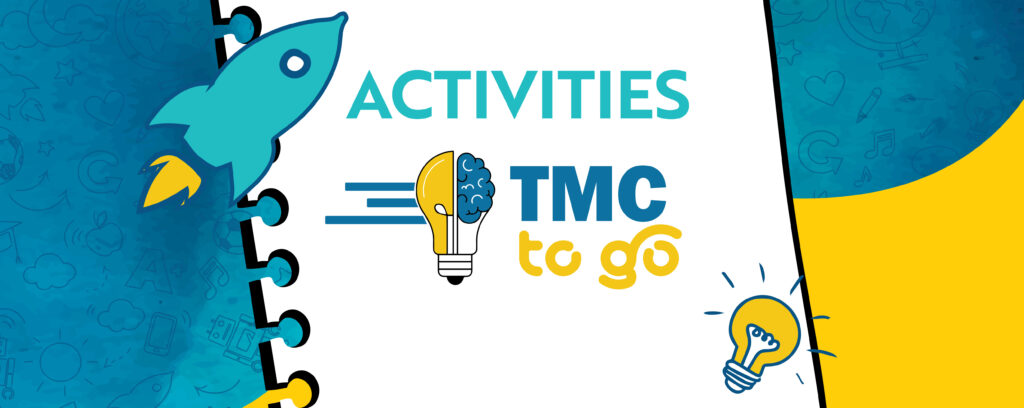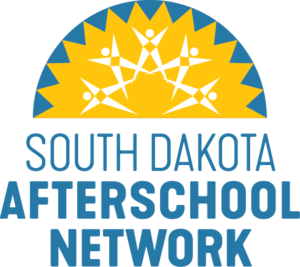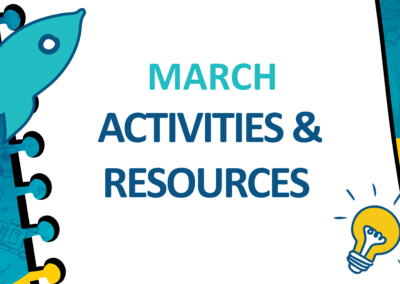Activities
Activity Playlist
Looking for a sequence of activities you can implement in your afterschool program today? Say goodbye to googling or searching on Pinterest. Use the following activities in sequence to support youth in building an engineering mindset.
- Activity: Make a Candy DNA Model – Each human has a unique DNA sequence and the DNA in all of us is about 99.9% identical! In this activity, youth use pieces of candy to make a model for a short section of DNA—enough to get a sense of what DNA is like and how it encodes life.
- Activity: As a part of Illumina’s The Future is Bright Campaign celebrating DNA Day, Million Girls Moonshot is partnering to provide a number of resources for programs to celebrate DNA day! Featured opportunities include a Virtual Lab Simulation; a Virtual Field trip; and DNA Decoded, ready to go, lessons and activities for educators!
- Activity: Investigate Alien Genetics – This activity uses an alien model to demonstrate how genes or physical traits are passed on from parents to their offspring. How similar will alien siblings look? OR Check out Baby Lab and use probability to predict genetic traits.
- Activity: Effects of Genetic Engineering – Farmers have been using “genetic engineering” for hundreds (maybe thousands!) of years. They use the seeds of the biggest, tastiest, etc. fruit to plant the next generation of that particular plant. Have a discussion about the advantages.
- Activity: Make String from Algae – The seaweed in the ocean (or even eaten as a snack) is inspiring innovators to imagine new materials. Large brown algae, like kelp, contains polymers—long chains of molecules—that are more environmentally friendly than the ones in most plastics. These natural polymers (alginates) could eventually be used to create sustainable everyday objects. Try your hand at using a bit of chemistry to turn biodegradable polymers from algae into custom string!
Looking for EVEN More Activities at NASA?! Activity Toolkit: Engineering is Elementary’s NASA Partnership free units – A suite of free NASA-funded STEM resources for students in grades 3-8. All resources are research-based and classroom-tested. They are designed to support students’ understanding of space, while helping them see themselves as capable problem solvers.

Click on the links below to access curated mini units of STEM-based curriculum from SDAN.
- Activity Guide: Getting Electric
- Activity Guide: Inside My Body
- Activity Guide: Building Great Structures
- Activity Guide: Harnessing Air
Resources
DNA Day
- NGCP National Webinar “STEM Stories: Women’s Experiences Advocating for Equity” – In this webinar recording, participants will hear from NGCP fellows about their experiences working on diverse projects, including the IF/THEN® Collection, NGCP Annual Survey, and supporting State Collaboratives.
- A Mighty Girl “16 Women Scientists You Should Know” – In this blog post, we’re sharing the stories of 16 historic female scientists who have blazed new trails in their disciplines. From determining the size of the universe to unlocking the secrets of the genetic code, these women have forever changed the way we see our world.
- National Women’s History Museum Digital Classroom Resources – Explore classroom-ready resources created by the Museum and through the “For Educators, by Educators” initiative. There are lesson plans, biographies, posters, primary sources, and more. You can search by topic, theme, or resource type. Select “STEM” from the topic menu for STEM-relevant resources.
- Not the Science Type Docuseries – Not The Science Type gets to the heart of access and gender inequity in STEM education and STEM fields. This four-part docu-series features four female scientists who are challenging stereotypes and confronting gender, racial, and age discrimination as they rise to prominence.
Transformative Practices
-
- Resource Library: Earth Day Education – Browse resources to guide your environmental education lessons and stewardship activities on Earth Day and throughout the year. These resources can be adapted to a variety of ages and settings.
- Resource Library: PBS Kids Protecting Our Planet Resources – Earth day games, crafts, printables, and other resources for kids ages 2-5 from PBS Kids.
- Toolkit: Math Equity Toolkit – This toolkit layers professional development into “Strides” that educators can take along a path to equitable education. Topics include Dismantling Racism in Mathematics Instruction and Creating Conditions to Thrive.
- Professional Development Guide: The National Center for Quality Afterschool – Math in Afterschool – The National Partnership for Quality Afterschool Learning developed professional development guides for four content areas of the toolkit: literacy, math, technology, and the arts.
- Toolkit: Brokering Youth Pathways: A Toolkit for Connecting Youth to Future Opportunity from the Hive Research Network – This toolkit shares ways in which various out-of-school educators and professionals have approached the challenge of brokering. We provide a framework, practice briefs and reports that focus on a particular issue or challenge and provide concrete examples, as well as illustrate how our partners worked through designing new brokering routines in partnership with our research team.









